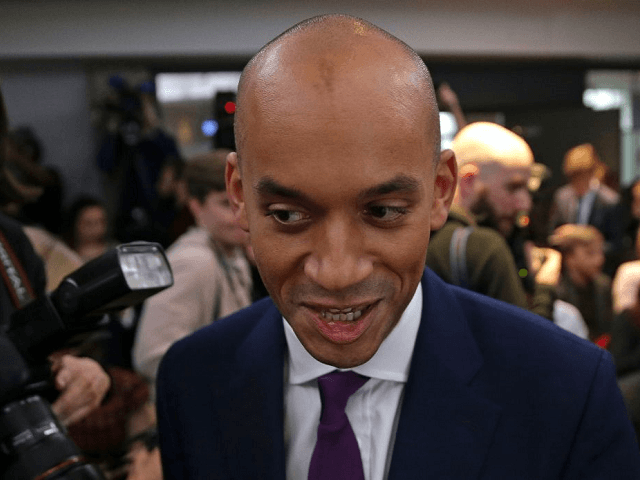Speaking at the launch of the new ‘Independent Group’ of centrist Members of Parliament who have, after much speculation, decided to break away from the Labour Party, Chukka Umunna has complained of a “broken” politics with parties that can’t represent the key political factors of the day.
It is clear that Umunna is one of the key driving forces behind this new party that isn’t a party — yet — so it is worth looking at his comments to get a feel for where this group is heading, beyond the headline Brexit and anti-Semitism issues.
The big issue behind Umunna’s comments is a clear feeling that Britain’s politics is “broken” — his colleagues in the group also spoke of voters feeling “politically homeless”.
It is interesting he noted the broken nature of British politics’ two-party system — an observation held in common with UKIP supporters, among others.
BREAKING: Globalist MPs Break Off from Labour, Form 'Independent Group' https://t.co/qJRai1m8Mw
— Breitbart London (@BreitbartLondon) February 18, 2019
The globalist timbre of Chukka’s speech becomes clearer when comparing his leitmotif of the failure of political parties rooted in the class struggles of the 19th century to adapt to the 21st century to an opinion piece published by progressive multi-billionaire financier George Soros last week.
Calling for what he believed to be a pro-European Union, centrist silent majority to “wake up”, Soros criticised the legacy left-right parties as hangovers from the previous century and even gave qualified praise to populist, anti-European Union parties as having “some principles, even if they are odious.”
This morning, Umunna hit on similar themes: “The last few years have shown the established parties are simply not up to this challenge. They can’t be the change because they have become the problem,” he said.
“They have failed to provide the leadership and clear direction that the UK desperately needs, they are deeply divided, they have failed to fulfil their duties with the competence the public rightly deserves, they have put their party political interests before the national interest, and they don’t represent the complex tapestry which is modern Britain.
“There are those who will say there is no alternative, we are doomed to be saddled with the same old politics. [Who would say] that we have to settle for voting for the least-worst option, to keep the other lot out… we reject this completely.”
Telling his audience of journalists that British democracy was failing, Umunna suggested: “it is time we dumped this country’s old-fashioned politics and created an alternative that does justice to who we are today, and give this country a politics fit for the here and now, the 21st century, not the last one. So we’ve taken the first step in leaving the old tribal politics behind, and we invite others who share our political values to do so too.”
Soros: ‘Europe is Sleepwalking Into Oblivion, Will Go The Way of the Soviet Union’ https://t.co/YmPwQrGj2Y
— Breitbart London (@BreitbartLondon) February 12, 2019
While Umunna and others are now seeking to make political hay from the political system they say fails to represent their perceived silent majority, the United Kingdom is not truly a two-party state like the United States — for instance — is.
Events over the past decade have done a little to break the old grip of Labour and the Conservatives. The 2010 General Election left Britain with no one party holding an outright majority — the first since 1974 — leading to a coalition government between the Conservatives and minor players the centrist Liberal Democrats. The 2017 election also left the Conservatives without an outright majority, with Theresa May relying on the support of an Ulster regional party to push her over the half-way mark.
Regarding the Independent Group, consider a U.S. parallel. Had Bernie Sanders captured the grassroots and Democrat nomination in 2016 only for the Hillary backing Dem elite to go their own way — you’re not far off from the Blairite, Globalist Independents leaving the patently anti-semitic, old-left Jeremy Corbyn to his own devices.
Oliver JJ Lane is the editor of Breitbart London — Follow him on Twitter and Facebook

COMMENTS
Please let us know if you're having issues with commenting.